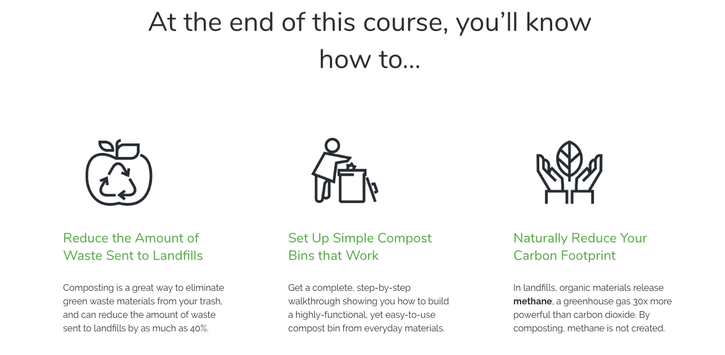The program’s overall goal is to divert waste from landfills and to hit 75 percent reduction in landfilled organics by 2025.
If you ask Global Disposal’s CEO Josh Allen about composting best practices, he’ll tell you, “I don’t want to say composting is complicated, but there are some nuances to it.”
Too much citrus can ruin a compost pile. Meat is an obvious problem. And space and odor problems are big issues for many people.
A new, video-based teaching program, called Compost Made Easy, from California-based Global Disposal teaches the public to compost from organic materials for nutrient-rich compost year-round. For its videos, Global Disposal partnered with organic gardener and YouTube sensation CaliKim29 of CaliKim Garden & Home to help make sustainable composting easy for residents to start from their own backyards.
“We are hoping this is an informative, entertaining resource that the cities can push people to,” says Allen. “When residents go to the city site, they have to enter their address, so the city can keep track of how many people are participating. What we’re hoping is that as we get more participation, we can add more content and more content creators into the system, so, ultimately, we’re creating a little community that people can really hone their composting skills and do it themselves at home.”
The Compost Made Easy videos from Global Disposal are free, and participants can utilize an on-hand expert any time through the toll-free hotline to discuss any compost questions they may have. Participants can also send emails and get answers to their composting questions. If they have a problem or a scenario, the program has a master composter who will call them back and work through it with them.

The course is designed to teach the public to:
Reduce landfill waste by as much as 40 percent
Set up compost bins that work (from everyday materials)
Reduce their carbon footprint (reduce methane production)
Give nutrients back to their home gardens
Teach kids to be environmentally conscious
“We think that is the easiest, most convenient way for people to have access to the information,” explains Allen.
Allen adds that some of his staff attended an informative but extremely time-consuming composting master class that was cumbersome for them to get to and complete.
“It’s just a lot for some people to do, and cities are looking for different ways to educate people and get their residents involved,” he explains. “So, convenience is a huge barrier to that.”
With the new city mandates from recent environmental bills in California, cities are required to offer new programs for their residents to source, reduce and recycle organic waste. The landfill is usually the last component considered when a city tries to reduce waste.
CA Senate Bill 1383 maintains ambitious goals to reduce climate pollutants (black carbon, fluorinated gases and methane) that greatly affect air quality, public health and climate change.
The U.S. Environmental Protection Agency reported 32 million tons of waste in 2016, 10 million tons of which was organic materials. In California, one-third of the average citizen’s trash could be turned into compost. Right now, Global Disposal’s program focuses on cities in California, but Allen says that residents all over the country can tune in and benefit from the videos.
Global Disposal produced these videos to help teach residents via technology and avoid making them drive to compost classes. The overall goal is to divert waste from landfills and redirect it with an immediate positive impact on the environment. The intent is to hit 75 percent reduction in landfilled organics by 2025.
“Space and smell are big issues for people,” says Allen. “If your compost pile smells bad, you’re probably doing something wrong. With organics being such a big push right now in California, most municipalities are trying to come up with solutions for it. The solutions they have at the municipal level—maybe taking green waste to a composting facility—are things you can do in your backyard and use it for your landscaping and your gardening. And that is the best possible environmental solution for cities is to get people to compost at their own homes.”
About the Author(s)
You May Also Like




